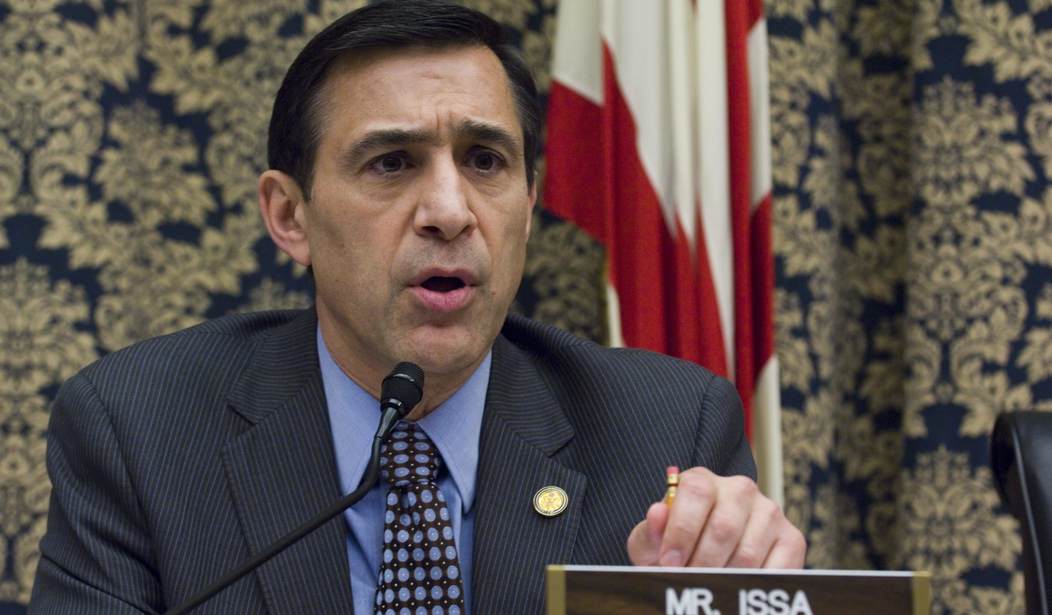WASHINGTON – Several high-ranking Republican lawmakers are seeking additional documents from the Internal Revenue Service following revelations that the agency’s practice of blocking requests for tax-exempt status from several political groups may involve an official close to the White House.
Rep. Darrell Issa (R-Calif.), chairman of the House Oversight and Government Reform Committee, which is probing the ongoing IRS scandal, led a group of four committee and subcommittee chairmen asking Daniel Werfel, commissioner of the nation’s tax collection agency, to provide additional information regarding internal discussions about the status of Tea Party groups.
The request follows the testimony Thursday of Carter Hull, a recently retired tax law specialist with the agency who told Issa’s committee the IRS chief counsel’s office was involved in scrutinizing and delaying applications for 501(c)(4) status sought by various political organizations that operate exclusively for the promotion of “social welfare” issues.
Issa and others have charged that the delaying tactics were politically motivated, maintaining that the organizations facing delays in their applications for 501(c)(4) status were conservatives at odds with President Obama. It since has been revealed that some progressive groups may have faced similar delays.
Investigators have been attempting to determine if the delaying tactics were being orchestrated by the White House. The administration has denied any knowledge or involvement and thus far the Oversight Committee has proved unable to establish a concrete connection. The Hull testimony may have opened a new line of inquiry.
In his testimony, Hull, who worked with the agency for 48 years and is a self-described 501(c)(4) expert, said he had gathered sufficient information on the requests in question to render a determination of whether or not to grant the status.
But Hull’s recommendations were not carried out. Instead, according to testimony, the Tea Party applications were detained for additional review by the IRS chief counsel’s office. That was done at the direction of Lois Lerner, who was then the director of the IRS Division of Exempt Organizations. Lerner invoked her Fifth Amendment rights during an appearance before the panel.
Hull told the committee he met with officials from the chief counsel’s office in August and was instructed to collect updated information. It was later determined that the chief counsel was primarily interested in determining the applicants’ political activities leading up to the 2010 election.
Hull acknowledged that the additional review was “unusual.”
Regardless, the applications languished and Hull, working out of the agency’s Cincinnati office, said his hands were tied in trying to move them forward. The head of the Cincinnati office, Cindy Thomas, testified that she continuously asked senior Washington officials for guidance to no avail.
Hull maintained he was never ordered to slow-walk the applications by any of the higher-ups. Eventually the applications were taken from him for additional review. He told investigators that as far as he knows the cases remain open.
“I was waiting for word from chief counsel as to how to proceed,” Hull said.
The IRS chief counsel’s office was and currently is led by William Wilkins, one of two Obama administration political appointees at the IRS who, records show, attended at least nine White House meetings.
In their letter to Werfel, Issa, along with House Ways and Means Committee Chairman Dave Camp (R-Mich.), House Oversight Subcommittee Chairman Jim Jordan (R-Ohio), and House Ways and Means Subcommittee Chairman Charles Boustany Jr. (R-La.), noted that the committee has determined that the IRS chief counsel’s office in Washington “has been closely involved in some of the applications. Its involvement and demands for information about political activity during the 2010 election cycle appears to have caused systematic delays in the processing of Tea Party applications.”
In furtherance of the probe, the lawmakers are seeking, among other items, all documents and communications between the IRS and the executive office of the president from Feb. 1, 2010, to the present.
Meanwhile, Democrats on the committee, led by Rep. Elijah Cummings, of Maryland, the ranking member, are maintaining that there exists growing evidence that 501(c)(3) applications from liberal and progressive groups were similarly delayed by the IRS and that Issa is “cherry-picking” evidence for political purposes, making it appear that Tea Party groups were singled out.
During Thursday’s hearings, Democrats accused IRS Inspector General J. Russell George of suppressing pertinent information held by the agency establishing that non-Tea Party groups were being targeted as well.
George revealed to the committee that he only recently learned that there were, indeed, documents establishing that groups described as progressive also experienced delays in their applications. He expressed displeasure over the turn of events.
“I am disturbed that these documents were not provided to our auditors at the outset, and we are currently reviewing this issue,” George said.
George earlier released an audit focusing on Tea Party and other conservative groups maintaining that the IRS had inappropriately targeted their applications based on political ideology. George said his office is determining how to handle the recent revelations about progressive groups.
Editor’s note: This story has been corrected from an earlier version. Lerner has not resigned.









Join the conversation as a VIP Member